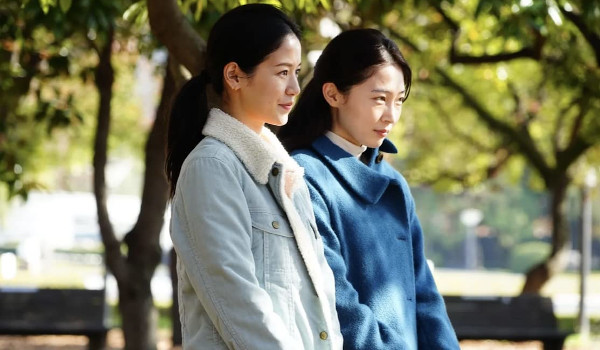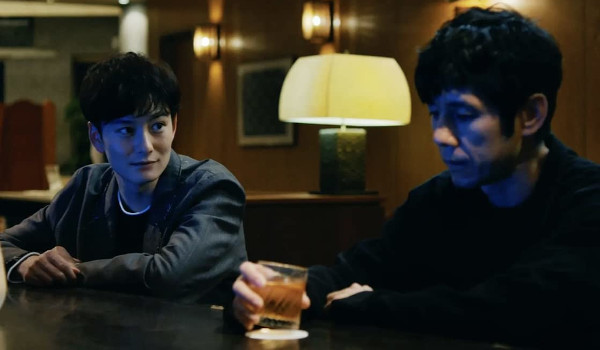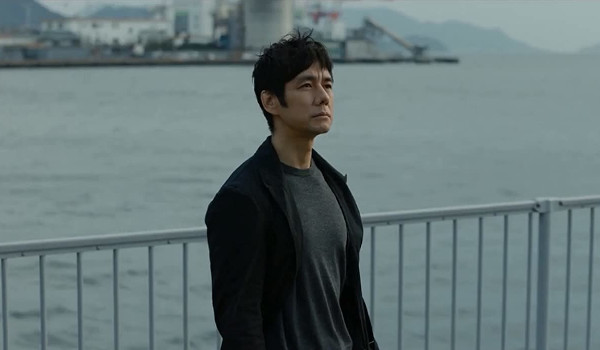- Title: Drive My Car
- IMDb: link

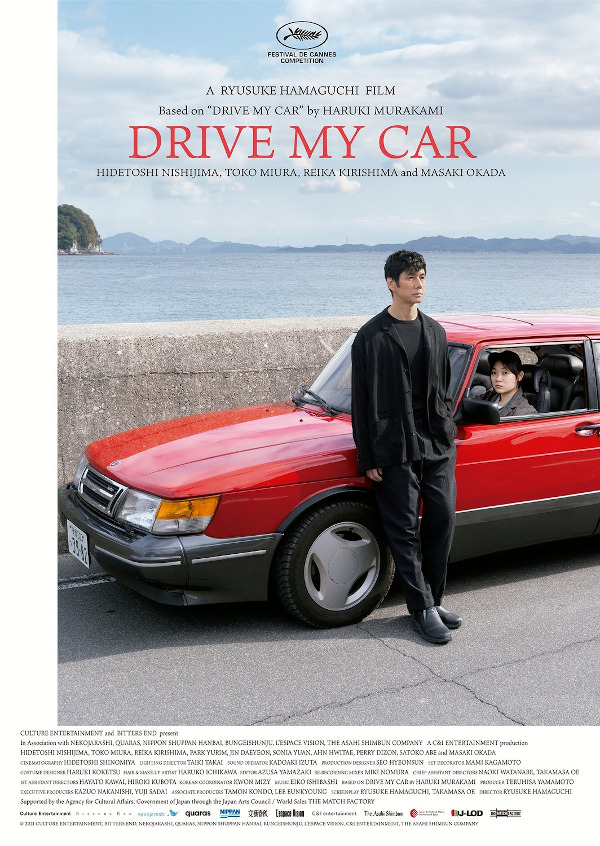 Movies find you in interesting ways. Drive My Car is the film I’d been searching for through all of 2021, a true cinematic experience that enveloped me, taking me on a completely unexpected journey built on strong storytelling and great performances.
Movies find you in interesting ways. Drive My Car is the film I’d been searching for through all of 2021, a true cinematic experience that enveloped me, taking me on a completely unexpected journey built on strong storytelling and great performances.
Adapting Haruki Murakami‘s short story, writer/director Ryûsuke Hamaguchi delivers a beautiful look at loss, moving on, and the unexpected relationships that form when you least expect them. Our main character is Yûsuke Kafuku (Hidetoshi Nishijima), a stage actor and director. The script spends more than a half-hour developing his relationship to his wife Oto (Reika Kirishima), including some shocking discoveries by Kafuku, which works as backstory for the main film still yet to come, but is still presented with such care it could easily have been fleshed out into its own film.
Our main story centers on Kafuku taking a job in Hiroshima directing a multi-lingual adaptation of Chekhov’s Uncle Vanya for two months. The challenges of such a project are daunting, even for one not still suffering from a tragic loss. Haunted by events of the past, Kafuku is unable to play the starring role and chooses instead the most unlikely of actors (Masaki Okada) given their history which will provide its own payoff before all is said and done.
The play is stocked full of interesting characters, including a mute woman played by Yoo-rim Park who signs in Korean. Once again, Hamaguchi delivers as the work on the play is deep and thought provoking and too could also easily be fleshed out into its own movie. Instead, our director builds into a larger whole as but one of many threads that play on Kafuku’s state of mind over a period of two months as the play also offers the setting for Kafuku to deal with Takatsuki (Masaki Okada) and the unresolved feelings for his wife finding a measure of peace and understanding in the most unexpected place.
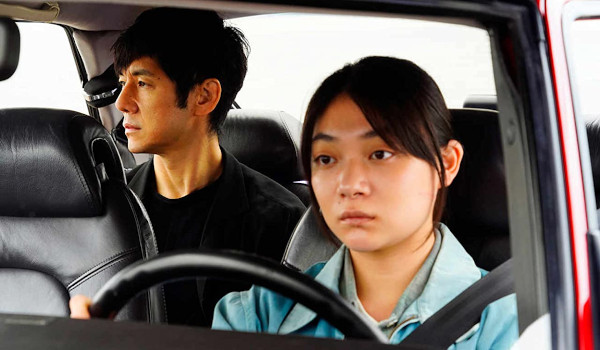
And now we come to the meaning of the movie’s title. Against his will, Kafuku is saddled with a driver by the organizers of the event. While initially refusing to allow Misaki (Tôko Miura) to drive his car, he finds an unexpected kinship with her on the long drives to and from the theater. While far from sexual, their relationship grows into a shared intimacy separate from the world around them. Misaki could easily have been nothing more but a plot device, but she comes out of her shell in the film’s final act as well as the movie builds to its cathartic close.
There’s a fragile strength to the characters here, and more than once I was taken how intricate and beautiful the story becomes and how unlike an American film it broaches its subject matter and delves lightly into the hearts of the characters. The movie is an embarrassment of riches in cast, story, tone, and some amazing cinematography of Hidetoshi Shinomiya who never frames a dull scene (which is quite impressive for a three-hour movie that flows so well you hardly notice the time) make the most of the beautiful scenery and even the sparse table reads in preparation for the production of a play that must go on. In Drive My Car, Ryûsuke Hamaguchi has offered a profound statement about art, life, loss, connection, and the human spirit. It’s easily the best film of 2021.

